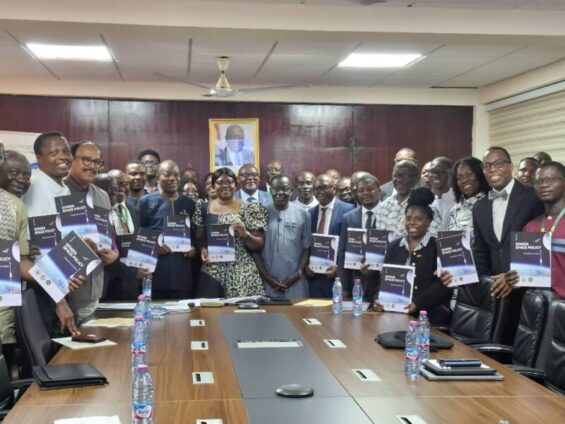Ghana has launched a comprehensive policy for the utilisation of space science technology to drive national development.
The Ghana Space Policy would pave way for the establishment of the Ghana Space Agency to coordinate the development of human capital, infrastructure, and the overall growth of the space science sector.
Mrs. Ophelia Hayford, Minister of Environment, Science, Technology and Innovation (MESTI) launched the Policy at a ceremony in Accra on Tuesday.
Cabinet approved the Ghana Space Policy in March 2022.
Ghana has been employing space technologies in critical areas such as environmental monitoring, security, precision agriculture, navigation, weather forecasting, disaster management, and telecommunications.

Mrs. Hayford said the Policy would ensure that the deployment and usage of space technology were coordinated, regulated, standardised, and sustainably managed.
She said the Ministry would collaborate with relevant ministries and the private sector to ensure the successful implementation of the Policy.
“Let us leverage it (policy) to promote sustainable practices, drive technological advancement, foster international cooperation, and contribute significantly to the growth of space science in Ghana and across Africa,” the Minister said.
In 2011, Ghana signed the African Square Kilometre Array (SKA) partnership agreement with South Africa and seven other African countries to develop the world’s largest radio telescope network to explore the universe and conduct leading-edge research.
Dr. Joseph Bremang Tandoh, Director, Ghana Space Science and Technology Institute, said investments in Ghana’s space programme were necessary to support agriculture, infrastructure, and economic growth.
“Space technology can help us manage resources, track agricultural health, and mitigate climate change,” he said.
“With this policy, we are not just joining the space race but creating opportunities for economic growth, job creation, and technological advancement,” Dr Tandoh added.
Dr Kofi Asare, Manager, Remote Sensing and Climate Sector, said the country could utilise space technology to effectively manage her land and water resources to reduce destruction.
Under agriculture, he said satellite technology could help to monitor crop health, soil conditions, weather patterns and crop yield prediction and estimation.
Professor Elvis Asare-Bediako, Vice-Chancellor, University of Energy and Natural Resources (UENR), said the University was working towards undergraduate and postgraduate programmes to train students in space technology.
“We are ready and equipped with expertise to partner with the Government to push the exploration of space technology to its appropriate height,” he said.
Latest Stories
-
WAFU B U-17 Girls’ Cup: Black Maidens beat Nigeria on penalties to win inaugral tournament
2 minutes -
Real Madrid beat Sevilla to keep pressure on leaders Atletico
1 hour -
Liverpool put six past Spurs to go four points clear
1 hour -
Manchester United lose 3-0 at home to Bournemouth yet again
1 hour -
CHAN 2024Q: ‘It’s still an open game’ – Didi on Ghana’s draw with Nigeria
1 hour -
CHAN 2024Q: Ghana’s Black Galaxies held by Nigeria in first-leg tie
2 hours -
Dr Nduom hopeful defunct GN bank will be restored under Mahama administration
3 hours -
Bridget Bonnie celebrates NDC Victory, champions hope for women and youth
3 hours -
Shamima Muslim urges youth to lead Ghana’s renewal at 18Plus4NDC anniversary
4 hours -
Akufo-Addo condemns post-election violence, blames NDC
4 hours -
DAMC, Free Food Company, to distribute 10,000 packs of food to street kids
5 hours -
Kwame Boafo Akuffo: Court ruling on re-collation flawed
6 hours -
Samuel Yaw Adusei: The strategist behind NDC’s electoral security in Ashanti region
6 hours -
I’m confident posterity will judge my performance well – Akufo-Addo
6 hours -
Syria’s minorities seek security as country charts new future
7 hours

